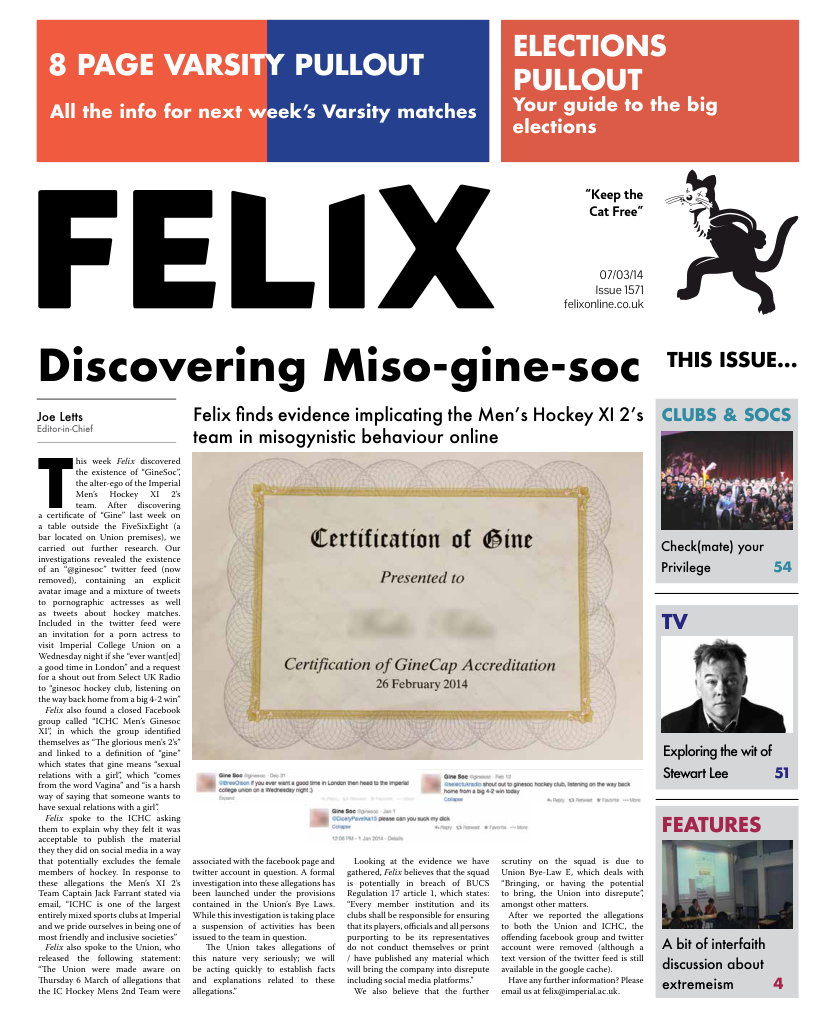The Mt Gox Bitcoin Debacle
Yong Wen Chua, on the dangers of trusting an online currency
The fledgling cryptocurrency Bitcoin suffered one of its biggest setbacks this past week when the (formerly) largest exchange Mt. Gox filed for bankruptcy protection. The beleaguered exchange has been marred by a string of management problems before it filed for bankruptcy protection. Yet, the currency has been relatively stable amidst all of these: after briefly falling to US Dollars (USD) 400 per Bitcoin after the news broke, it has now recovered up to a steady state of around USD 650 at press time. Decentralisation is at the core of Bitcoins through the clever use of cryptography. There is no central authority to prove, or disprove that Bitcoins are “owned” by anyone in particular. There is a distributed public ledger, known as the “blockchain” that keeps a log of all the transactions that have ever taken place between Bitcoin addresses. In order to “spend” the coins, one has to prove ownership of the coins via the use of private keys associated with public Bitcoin addresses. In other words, with the blockchain, it is possible to trace how Bitcoins have exchanged hands, and calculate exactly how many coins a certain address has in its possession. There are generally two ways to obtain Bitcoins: mining or exchanging with some fiat money. Mt. Gox was one of these exchanges. For some time, Mt. Gox was one of the largest exchanges where people could turn their USD into Bitcoins. But according to some leaked documents and insider information, the company was very badly managed and some claim that the writing was on the wall for it to collapse. Mt Gox suffered a series of setbacks along its way. The first setback that Mt Gox suffered was in late 2011 when it suffered a breach to one of the textbook attacks: SQL injection. Throughout 2013, Mt Gox would periodically shut down for “cooling off”, always blaming some glitch or another. Customers were complaining for weeks long waiting for withdrawals, with some allegedly never completing. Mt. Gox was also having to face several legal issues with the US government. It was during this time that other exchanges begin to spring up and become more prominent due to the various issues facing Mt Gox. On February 7 2014, Mt. Gox halted all trading activities. It cited a problem with “transaction malleability”, a known issue with the Bitcoin protocol, as a reason for doing so, and hinted that it had lost money to this problem. This was not a catastrophic problem because if the software were written properly, they would be able to safeguard against this problem as many other Bitcoin exchanges have done so. Nevertheless, Mt Gox cited this as a reason, and hinted that they have lost a significant amount of their money. Finally, on February 24, Mt Gox shut down without a word and filed for bankruptcy protection soon after. Right away, the various exchanges issued a joint statement saying that the problems at Mt Gox do not represent a problem with the Bitcoin community at large. Bitcoin is not centralised at Mt Gox, and the fall of a player, albeit a big one, does not spell the doom of Bitcoin. This sense of optimism seem to be shared by the community. After falling rapidly on the day Mt Gox shut down, the price of Bitcoin quickly rose and stabilised at a value higher than before Mt Gox shut down. Perhaps the old adage of having any publicity is good publicity rings true as Bitcoin turns a new page in its history.







